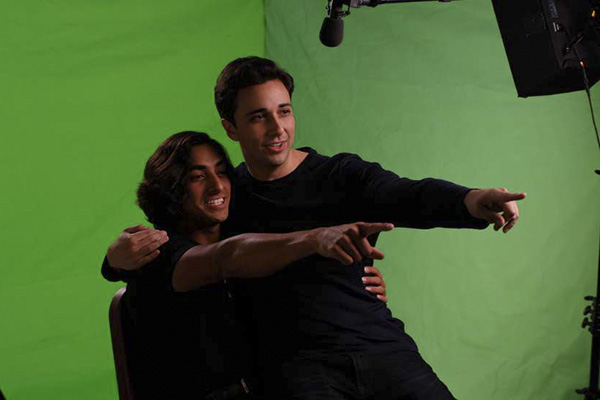UT alumnus Eman Esfandi is usually in front of the camera, but after taking a spin in the director’s chair, his work is now streaming on HBO.
Eman Esfandi directed a short film called “Pepito” that comedically explores the conflicting identities of a mother and her adult son, Pepito. The film was one of three winners of HBO’s Latinx Short Film Contest and is now available for streaming on the service. The Texan talked with Esfandi about the short, his UT experience and how filmmakers can make the most out of quarantine.
The Daily Texan: How did your film end up being recognized by HBO?
Eman Esfandi: There was this (short) film festival called Official Latino Film Fest in California. Isaac (the writer and star of the short), was like, “Hey, man, if I submit to this, will you come with me?” I was like, “Are you kidding me? Absolutely.” So he submits. Then we find out HBO jumps in and is deciding to host their first ever HBO Latinx short film competition at this festival. We're like, “Oh sh*t.” (Afterward,) we found out we were one of the three recipients of the competition. Now they've got that whole (Latinx Short Film Showcase) going, (and) we're kind of the inaugural class.
DT: What sort of things should aspiring actors and filmmakers be doing during quarantine?
EE: There are really brilliant books on acting, the one most brilliant that I literally finished during this quarantine in a day is a book called “True and False” by David Mamet. My genuine belief is that everything is the same. So to succeed in acting is just the same as to succeed in directing and just the same as to succeed in a sport. If you're a filmmaker, then do research. Literally pause (a film) and go, “What time did this moment happen? Oh okay, because this is a huge moment in the film. Okay, we're two thirds of the way in. That makes sense.” There's so many incredible things on YouTube that analyze shot selections of your favorite film directors.
DT: How did your UT experience shape your career in the film industry?
EE: I used to literally audition for every UT student's short there was, even if the (casting call) said Caucasian or whatever. I just auditioned for all of them because I was like, “Hey, I just want to get in the room, get used to it and practice.” I had worked on so many (student) sets, so everybody was around my age and became my friends. And every time I asked anything, they were just so willing to be like, “Oh, yeah, I'm a gaffer, gaffers do this.” Or, “I am the AD, this is my job.”
DT: What other work have you been doing in regards to acting?
EE: I moved out to California because I have (an agent), and I was scheduled to be in a Warner Brothers studio feature. It got put off by the pandemic for the time being. That's actually my first role booked (in California), which is crazy. I actually was a lead in a Robert Rodriguez film (“RED 11”) as an actor before I moved out to LA. We shot at Troublemaker Studios for only 14 days. (Rodriguez) made (the film for) $7,000. We went to Cannes (and SXSW) with it.




















